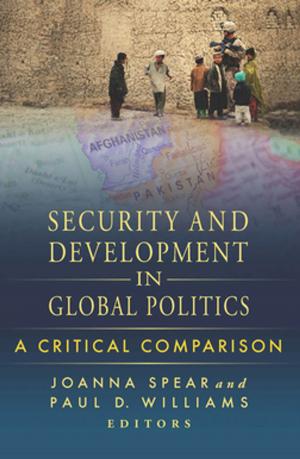Radical Arab Nationalism and Political Islam
Nonfiction, Religion & Spirituality, Christianity, Church, Church & State, Social & Cultural Studies, Political Science, International, International Relations| Author: | Lahouari Addi | ISBN: | 9781626164512 |
| Publisher: | Georgetown University Press | Publication: | July 1, 2017 |
| Imprint: | Georgetown University Press | Language: | English |
| Author: | Lahouari Addi |
| ISBN: | 9781626164512 |
| Publisher: | Georgetown University Press |
| Publication: | July 1, 2017 |
| Imprint: | Georgetown University Press |
| Language: | English |
In Radical Arab Nationalism and Political Islam, Lahouari Addi attempts to assess the history and political legacy of radical Arab nationalism to show that it contained the seeds of its own destruction. While the revolutionary regimes promised economic and social development and sought the unity of Arab nations, they did not account for social transformations, such as freedom of speech, that would eventually lead to their decline. But while radical Arab nationalism fell apart, authoritarian populism did not disappear. Today it is expressed by political Islam that aims to achieve the kind of social justice radical Arab nationalism once promised.
Addi creatively links the past and present while also raising questions about the future of Arab countries. Is political Islam the heir of radical Arab nationalism? If political Islam succeeds, will it face the same challenges faced by radical Arab nationalism? Will it be able to implement modernity? The future of Arab countries, Addi writes, depends on this crucial issue.
Published in collaboration with Center for Contemporary Arab Studies, Georgetown University.
In Radical Arab Nationalism and Political Islam, Lahouari Addi attempts to assess the history and political legacy of radical Arab nationalism to show that it contained the seeds of its own destruction. While the revolutionary regimes promised economic and social development and sought the unity of Arab nations, they did not account for social transformations, such as freedom of speech, that would eventually lead to their decline. But while radical Arab nationalism fell apart, authoritarian populism did not disappear. Today it is expressed by political Islam that aims to achieve the kind of social justice radical Arab nationalism once promised.
Addi creatively links the past and present while also raising questions about the future of Arab countries. Is political Islam the heir of radical Arab nationalism? If political Islam succeeds, will it face the same challenges faced by radical Arab nationalism? Will it be able to implement modernity? The future of Arab countries, Addi writes, depends on this crucial issue.
Published in collaboration with Center for Contemporary Arab Studies, Georgetown University.















